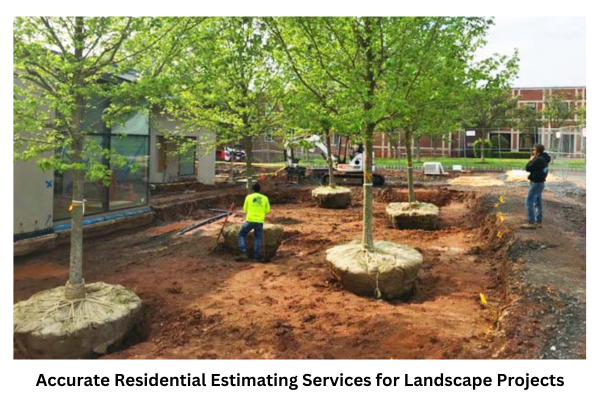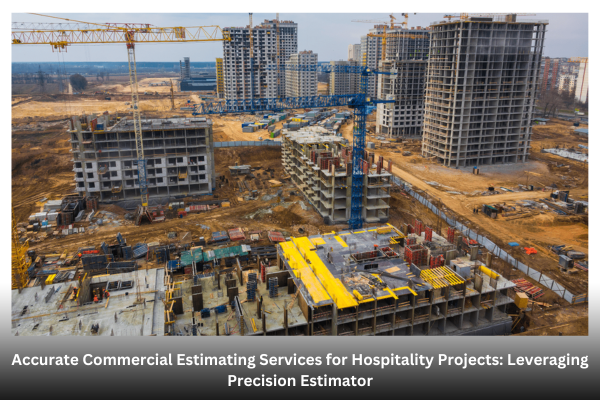The Importance of Plumbing Estimation Services for New Builds
A plumbing system is a critical infrastructure component of any building. It involves everything from water supply and drainage systems to gas lines and HVAC installations. Any inaccuracies or miscalculations in estimating plumbing needs can lead to major cost overruns, delays, and safety risks. Detailed plumbing estimation services play a key role in mitigating these risks by providing a clear, precise breakdown of the materials, labor, and costs required for the plumbing work on a new build.
Here are some reasons why detailed plumbing estimation services are essential for new builds:
1. Accurate Budgeting and Cost Control
A detailed plumbing estimate allows builders, developers, and property owners to accurately allocate funds for the plumbing aspects of the project. It prevents overspending by identifying the exact quantities of materials required, the cost of labor, and any other potential costs, such as permits or specialized equipment. Accurate estimates help in preventing budget blowouts and ensure that the plumbing work is completed within the financial scope.
2. Time Management and Scheduling
Plumbing is often one of the last components to be installed in a new build, but it requires early planning. Detailed plumbing estimation services allow contractors to plan and schedule work efficiently. With precise estimates, contractors can ensure that they have all the materials ready when needed, avoid unnecessary delays, and ensure the project stays on track. This level of precision helps maintain the overall construction timeline, preventing costly hold-ups.
3. Material Efficiency
A significant portion of the plumbing budget is spent on materials. Overestimating the number of materials needed for plumbing installations can result in waste, while underestimating can lead to shortages and delays. Precision estimators use detailed takeoffs and calculations to ensure that the right amount of materials is ordered, leading to cost savings and less waste.
4. Risk Mitigation
Inaccurate plumbing estimates can result in serious safety and compliance issues, as well as expensive rework. By using a detailed estimation service, builders can avoid potential hazards such as incorrect pipe sizing, improper water pressure calculations, or poor layout design. Estimators ensure that the plumbing system meets all local building codes and regulations, minimizing the risk of costly violations and safety concerns.
5. Clear Communication and Documentation
Plumbing estimates serve as a valuable communication tool between contractors, architects, engineers, and clients. A detailed plumbing estimate document provides clarity on the scope of work, materials used, and labor involved, which is essential for keeping all parties aligned throughout the project. It also serves as a reference point for managing project changes, ensuring that any deviations from the original plan are documented and agreed upon.
Components of a Detailed Plumbing Estimate for New Builds
A well-prepared plumbing estimate is comprehensive and includes a detailed breakdown of all elements involved in the plumbing system installation. Here are the primary components that go into a detailed plumbing estimate for new builds:
1. Plumbing Takeoff
The plumbing takeoff is the process of measuring and quantifying the materials required for the project. It involves identifying all pipes, fittings, fixtures, and other plumbing components based on blueprints and plans. A detailed takeoff ensures that every part of the plumbing system is accounted for, from the water supply to waste removal, including pipe sizes, pipe types, and lengths.
2. Materials Cost Breakdown
Once the takeoff is complete, the estimator compiles a list of all materials needed for the job, including pipes, joints, valves, faucets, and other necessary plumbing fixtures. Each material is assigned a cost based on current market prices. Estimators also consider potential discounts for bulk purchases, as well as any special or custom materials required for the project.
3. Labor Costs
Labor is a significant portion of any plumbing estimate. The estimator calculates the number of hours required to complete the plumbing work, based on the complexity of the system and the labor rates of the plumbers involved. The estimate will include the labor costs for pipe installation, fixture setup, and any other specialized work such as welding or gas line installation.
4. Equipment and Tools
In addition to materials and labor, certain tools and equipment may be required to complete the plumbing installation. This includes pumps, scaffolding, trenching equipment, and specialized tools for cutting and joining pipes. These costs must be included in the estimate to ensure all expenses are accounted for.
5. Permitting and Inspection Fees
Most new construction projects require permits for plumbing work, especially when the system involves complex installations or changes to existing systems. Estimators ensure that these fees are included in the estimate, as well as the costs of any inspections required by local authorities.
6. Overhead and Contingency
In some cases, the estimator may include a contingency amount to account for unexpected changes or unforeseen challenges during the project. Overhead costs such as project management, administrative tasks, and site supervision are also factored in to ensure that the full scope of work is financially covered.
The Role of Precision Estimators
Precision estimators specialize in providing highly accurate and detailed estimates, ensuring that all components of the plumbing system are thoroughly accounted for. Their expertise is invaluable when it comes to tackling the complexities of plumbing installations in new builds.
Here’s how precision estimators enhance the plumbing estimation process:
1. Expertise in Plumbing Systems
Precision estimators are trained professionals who understand the intricacies of plumbing systems. They can identify potential issues early, such as inadequate water pressure or drainage problems, and recommend design adjustments that will save time and money later on. Their knowledge ensures that the plumbing system will be effective, efficient, and compliant with all regulations.
2. Advanced Software Tools
Modern precision estimators use advanced software tools that automate much of the estimation process. These tools allow for faster, more accurate takeoffs, and help generate detailed, easy-to-understand reports for clients and contractors. Software programs can also simulate different plumbing scenarios, helping estimators predict the most cost-effective solutions.
3. Collaboration with Other Trades
Plumbing is just one component of a new build, and it must integrate seamlessly with other systems, such as electrical, HVAC, and structural elements. Precision estimators often collaborate with other specialists to ensure that plumbing work does not interfere with other trades, avoiding potential delays or additional costs.
4. Real-Time Adjustments
Construction projects are dynamic, and changes to the scope of work can happen at any time. A precision estimator is capable of adjusting the estimate in real time, incorporating any changes to materials, labor, or scope of work. This flexibility ensures that the estimate remains relevant throughout the project’s lifecycle.
Conclusion
For any new construction project, detailed plumbing estimation services are crucial for ensuring the plumbing system is designed and installed correctly, on time, and within budget. Precision estimators provide a level of expertise and detail that minimizes risk, optimizes costs, and ensures that the plumbing system functions as intended. By working with a detailed plumbing estimating service, contractors, builders, and developers can avoid common pitfalls and achieve successful project outcomes.


